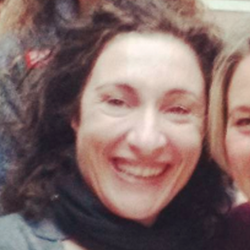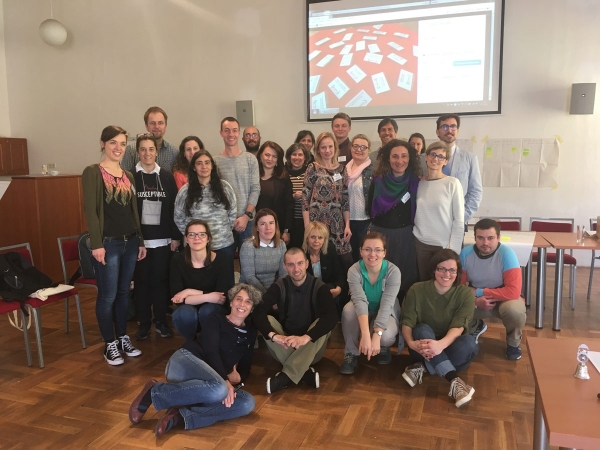The first Get Up and Goals! international seminar for teachers took place in Olomouc, Czech Republic, on March 21st to 23rd , where ARPOK organized an event attended by teachers from six participant countries: Bulgaria, Czech Republic, Italy, Netherlands, Portugal and Romania.
The seminar aimed to let teachers from different countries to meet and share good practices and ideas on how to include the four global issues of the project – climate change, migration, gender inequalities and international inequalities – in their teaching.
A detailed presentation of the global geo-history book (soon available here for free download) and workshops were also part of the seminar. Among those, a special focus was given to the teaching of SDGs, and gender inequalities.
Given the success of such first experience and looking forward to the next national and international meetings, it is our pleasure sharing with you a few thoughts by two attendees of the 3-days event in Olomouc. Please, keep reading for our short interviews.
 |
Giordana Francia, CISP - Director of Geographic Area European Union and Italy and Head of the Get Up and Goals! project |
What was the most important achievement of the seminar?
Giordana Francia: That all teachers involved had the opportunity to go beyond their national point of view and join a wider community, and that they were able to take home new methods and contents tested in different countries and schools abroad.
Did you find any particular similarities or differences in the way international teachers have approached to the project?
Giordana Francia: The project’s challenge is precisely to provide a broad framework in which partners and teachers can move effectively, although along with their (often very) different political, educational and school contexts.
The framework is the global citizen education (GCE) and its approach is declined in various ways according to specific contexts (for instance, possible differences concern the TLUs duration, the links among the selected subjects, the possible/impossible collaboration with other teachers, the support of the institutions, etc.).
How will the results of the Olomuc meeting influence future seminars? What are the next steps?
Giordana Francia: We have all learned important lessons on various aspects: how to allow teachers effectively exchange experiences, how to teach GCE through a common ground of practices and approaches while simultaneously enhancing the differences of each national context, and how to align some of the partners to the ultimate project’s goal, that is, to succeed in connecting the GCE to the formal education systems in an increasingly structural way.
Our next international seminar for teachers will take place in Portugal on May 11th to 13th, organized by IPVC, the International Polytechnic Institute of Viana do Castelo.
On May 13th to 16th Vienna will host the first international multi-stakeholders seminar, involving teachers, representatives of partners’ educational institutions, school heads, university professors, and representatives of NGOs and NGO networks. It will be organized by Suedwind.
A second multi-stakeholders seminar will be held in Senigallia, Italy, on September 6th and 7th, organized by CVM.
 |
Albina Rumeo, IC Parco della Vittoria - Teacher of Italian, History, Geography and Citizenship |
Why did you decide to take part in Get Up and Goals! and specifically in this seminar?
Albina Rumeo: I thought the project could help me setting up more organic and innovative lessons and activities on the theme of migration.
Some of the sessions included exchanges of ideas and good practices among teachers. Were there any proposals from foreign schools that struck you and that you would like to implement in your school?
Albina Rumeo: I was particularly struck by the activity proposed by my colleagues from Portugal, which I will certainly experiment in my classes. It is a game requiring students to overcome a series of obstacles while blindfolded. It allows students to identify themselves with the difficulties and risks of the migration process.
On Facebook we also shared a video of the simulation carried out by teachers during the workshop.
Would you recommend the next seminars to other teachers? Why?
Albina Rumeo: I strongly recommend the participation in such international seminars because comparing yourself to the experiences of other schools is a great way to improve yourself both professionally and personally.
-
Be involved!
Would you like to take part in one of Get Up and Goals! next seminars?
Follow us on Facebook, subscribe to our Newsletter, keep in touch and be part of our movement to reach the 17 SDGs and spread the Global Citizen Education!







